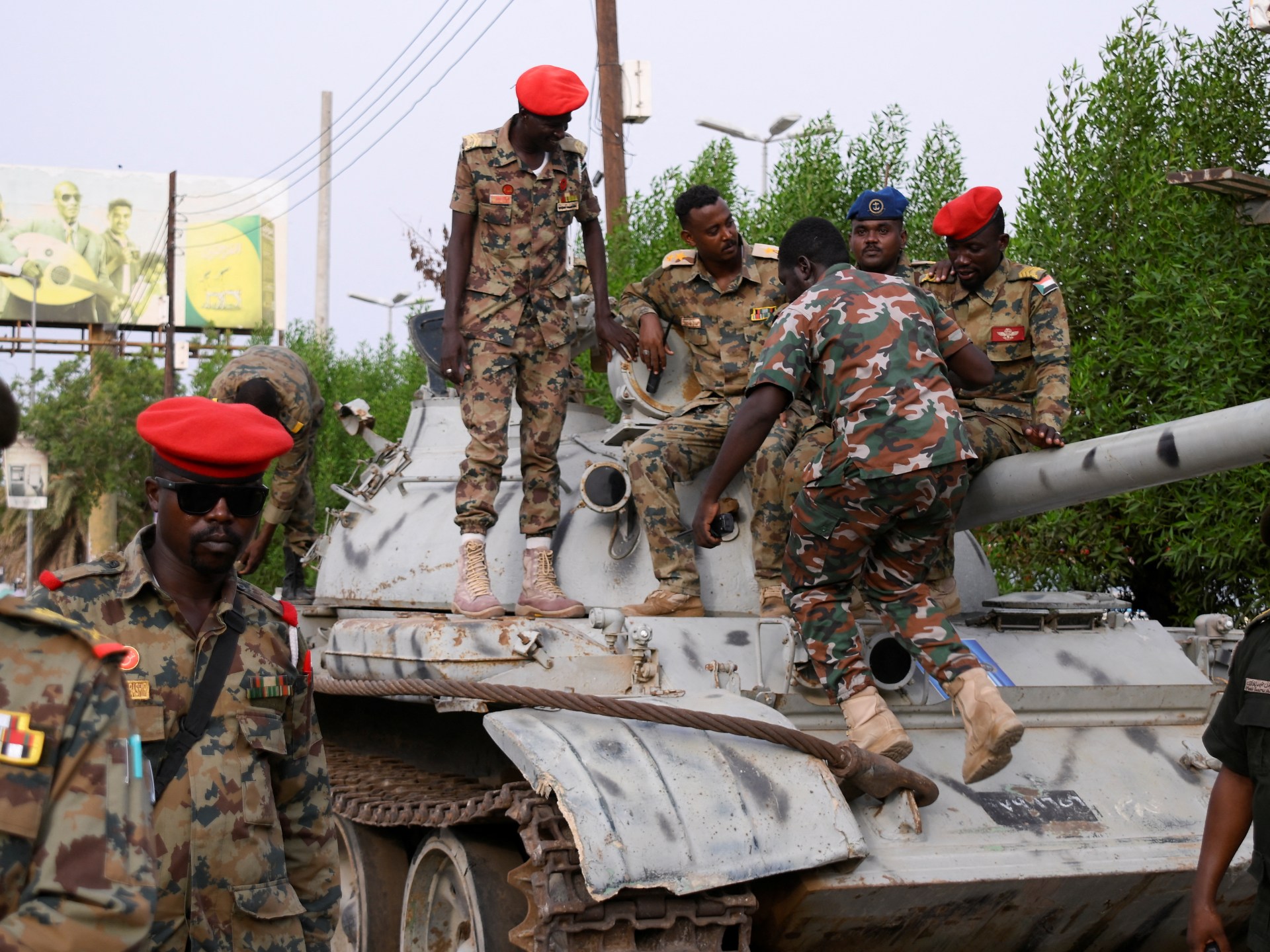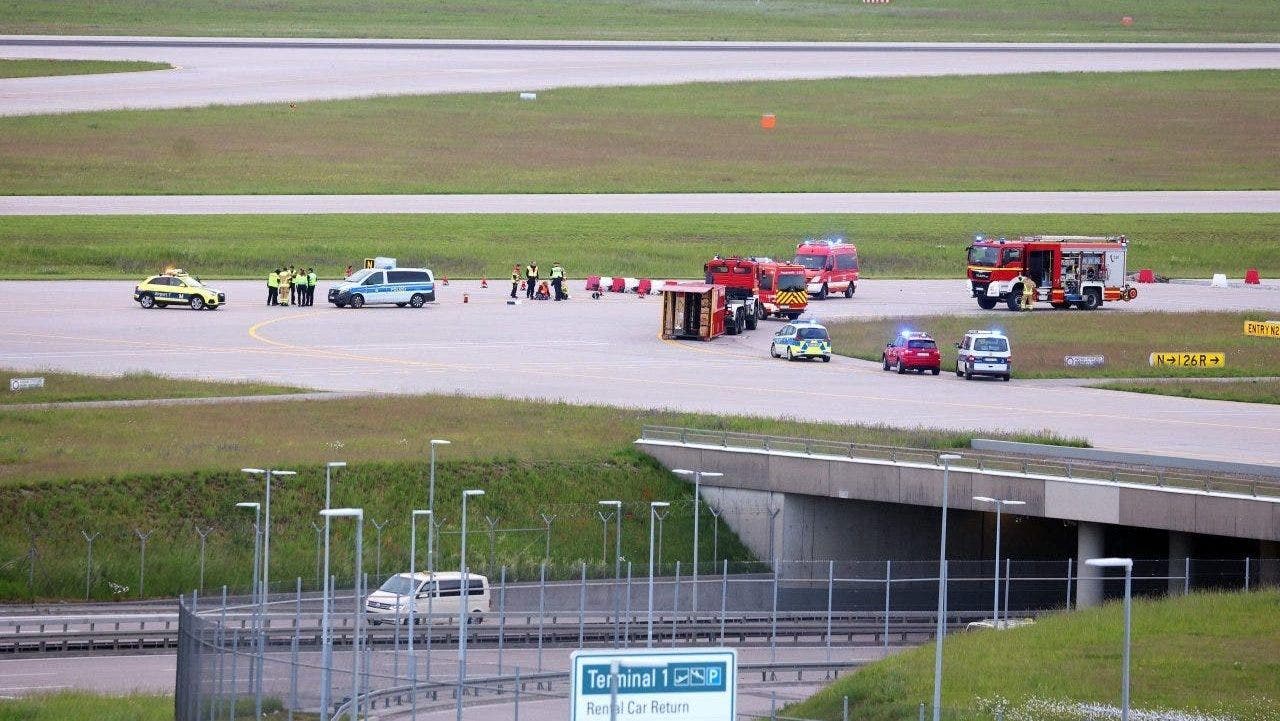World
Analysis: Port Sudan fighting reflects tribal-army tensions

For the first time in the conflict in Sudan, fighting broke out in Port Sudan between a tribal militia and the Sudanese army on Monday, and analysts say this reflects mounting tensions between eastern tribes and the army.
The militia claimed that it was inspecting several vehicles at a checkpoint to ensure that they belonged to the army and not the paramilitary Rapid Support Forces, which had recently threatened to attack the city.
Sudan’s civil war has largely spared the east, but some tribes fear the army’s dominant presence threatens tribal ownership of land, which could exacerbate local disputes.
There were no reported casualties and it is unclear what sparked the fighting in the Red Sea port city.
“The security situation in east Sudan is tied to old tribal families that have lived here for a long time,” said Yousuf Mahmoud, an activist in Port Sudan who asked to use a pseudonym for security reasons. “What’s missing is a solution. They must make social peace with each other and we must stop this trend of having so many armed groups or else the situation could get worse.”
But any unrest between the tribes – or between the army and the tribes – could endanger residents and derail relief operations, which use Port Sudan as a main logistics hub to administer aid across the country.
“I do think there is an interest among eastern tribes to not let the war blow up on their own home turf, but there are plenty of reasons that could go the other way,” said Alan Boswell, a Horn of Africa expert for the International Crisis Group, a non-profit committed to resolving conflicts worldwide.
“The east is a powder keg. We just haven’t seen it blow up yet.”
Militarising the east
Since June, the army has opened up dozens of recruitment centres in eastern Sudan to attract young people to fight against the RSF. Despite historic tensions with the army, many eastern tribes have enlisted their young men to acquire training and arms, analysts told Al Jazeera.
Suliman Baldo, the founder of the Sudan Transparency and Policy Tracker, which provides political analysis of the country, said the army’s recruitment drive could fuel local and ethnic disputes.
“The call for volunteers to join the army has generated a huge response from the east, because all [the tribes] fear being left out of [receiving arms and training],” Baldo told Al Jazeera.
The last major dispute in the east saw at least 37 people killed in a bout of ethnic violence between the Nuba and Beni Amr tribes in August 2019.
Mahmoud from Port Sudan said that there are two scenarios that could lead to a similar episode of violence.
“If a tribe feels excluded or if any tribe believes that a rival tribe tried to claim [disputed] land, then they might initiate an attack,” he told Al Jazeera.
Recurring mistakes
Arming and training tribes could also lead to a case of blowback, whereby those same tribes turn against the army, analysts told Al Jazeera.
That is the source of today’s civil war between the army and the RSF. The latter evolved out of the Arab tribal militias that the central government armed and recruited to crush a mostly non-Arab rebellion in 2003.
“The army isn’t learning from its past,” said Baldo.
Shibah Dirar, the leader of the Beja militia that clashed with the army last week, told the Saudi Arabian channel al-Hadath that he supported the fight against the RSF in Khartoum. However, that did not mean that he supported the army’s presence in Port Sudan.
“A special salute to all the formal armed forces at the centre of attacks and across Khartoum defending our home [Sudan],” Dirar said in the broadcast. “But those armed forces in the Red Sea state and the ones in closed rooms, we don’t stand by them.”
Dirar’s sentiment epitomises broader fears that the army will consolidate control over disputed tribal land, said Jonas Horner, an independent expert on Sudan.
“Under the kind of martial law situation currently at play in Sudan, there is much less assurance for tribal groups over the integrity of their ownership of their land, particularly where the army is increasingly utilising tribal land and where inter-tribal competition is exacerbated by a broader lack of law, order and enforcement,” he told Al Jazeera.
Aid at risk?
The brief clashes in east Sudan have put aid groups on high alert, but it has not prompted any pause or change in operations, according to three relief workers.
One source said that the clashes should compel the broader aid community to reevaluate the risks of funnelling all relief through Port Sudan. She said that the incident last week “spooked” aid organisations, but that it did not “scare them off”.
“In my opinion, there are real issues that humanitarian agencies need to pay attention to. I think we haven’t done a good job of really examining the implications of Port Sudan as our ‘base’,” she told Al Jazeera.
Another aid worker acknowledged that there is some concern about how stable Port Sudan is at the moment. He added that United Nations agencies and some international NGOs have over-relied on Port Sudan as a base for their aid operations, making it tricky for them to relocate in a hurry if needed.
“[Some aid groups] have a lot of eggs in the [Port Sudan] basket,” he told Al Jazeera. “But I wouldn’t say that this particular event has caused significant concern among the majority of aid actors present there.”
Mahmoud, the activist from Port Sudan, warned that the east could suffer a debilitating economic crisis and even a famine if aid operations were suspended for an extended period or relocated far from Port Sudan.
“I hope and believe that the tribes will not enter into a new conflict because it will be more violent than any previous war [we have seen here],” he told Al Jazeera. “Everyone will lose [if there’s conflict].”

World
John Stamos Shares Full House Reunion Photo With Olsen Twins in Honor of Bob Saget’s Birthday

ad
World
Climate activists glue themselves to Munich airport runway, pausing traffic

A group of climate protesters have been arrested in Germany after breaking into an airport and gluing themselves to the runway.
Six activists broke through security fencing at Munich airport in the German state of Bavaria on Saturday, according to the news outlet dpa.
Approximately sixty flights were canceled after the half-dozen protesters glued themselves to the tarmac, forcing officials to temporarily close the airport.
CLIMATE ACTIVISTS ARRESTED FOR BLOCKING AIRSTRIP IN MASSACHUSETTS
Climate activists lie on an access road for runways at the Munich airport. German officials and local media say authorities closed down Munich airport temporarily after six climate activists broke through a security fence and glued themselves to access routes leading to runways. ( (Karl-Josef Hildenbrand/dpa via AP))
An additional fourteen flights into Munich were forced to divert to other nearby airports to avoid the disruption.
Climate protest coalition Last Generation took credit for the stunt, claiming it was intended to draw attention to the German government’s inaction on the airline industry’s environmental impact.
CLIMATE GROUP TAKES RESPONSIBILITY FOR US OPEN CHAOS, OFFERS WARNING: ‘NO TENNIS ON A DEAD PLANET’

Climate activists stuck to a runway access road at Franz-Josef-Strauß Airport early Saturday morning. Climate protection activists paralyzed Munich Airport after breaking into the inner area of the airport grounds. The activists from the group Last Generation were protesting flying, the most polluting form of transportation, said the German news agency dpa on Saturday. (Karl-Josef Hildenbrand/picture alliance via Getty Images)
All six protesters were arrested and charged by law enforcement.
“Trespassing in the aviation security area is no trivial offense. Over hundreds of thousands of passengers were prevented from a relaxed and punctual start to their Pentecost holiday,” German Airports Association General Manager Ralph Beisel told dpa.

Police and firefighters stand on a runway access road at Franz-Josef-Strauß Airport around climate activists who have stuck themselves there. According to their own statements, members of the so-called Last Generation had planned to enter the airport grounds in order to block at least one of the two runways. (Photo: Karl-Josef Hildenbrand/dpa (Photo by Karl-Josef Hildenbrand/picture alliance via Getty Images))
“Such criminal actions threaten air traffic and harm climate protection because they only cause lack of understanding and anger,” German Interior Minister Nancy Faeser wrote about the protests on social media platform X.
The Munich incident was just one of many similar protests around the world against air transportation. Last Generation has performed at least two similar airport disruptions in Germany since last year.
World
Russian court seizes two European banks’ assets amid Western sanctions

Freezing hundreds of billions of dollars in lenders’ assets was part of dispute over gas project halted by sanctions.
A Russian court has ordered the seizure of the assets, accounts, property and shares of Deutsche Bank and Commerzbank in the country as part of a lawsuit involving the German banks, court documents showed.
The banks are among the guarantor lenders under a contract for the construction of a gas processing plant in Russia with the German company Linde. The project was terminated due to Western sanctions.
European banks have largely exited Russia after Moscow launched its offensive on Ukraine in 2022.
A court in St Petersburg ruled in favour of seizing 239 million euros ($260m) from Deutsche Bank, documents dated May 16 showed.
Deutsche Bank in Frankfurt said it had already provisioned about 260 million euros ($283m) for the case.
“We will need to see how this claim is implemented by the Russian courts and assess the immediate operational impact in Russia,” the bank added in a statement.
The court also seized the assets of Commerzbank, another German financial institution, worth 93.7 million euros ($101.85m) as well as securities and the bank’s building in central Moscow.
The bank is yet to comment on the case.
In a parallel lawsuit on Friday, the Russian court also ordered UniCredit’s assets, accounts and property, as well as shares in two subsidiaries, to be seized. The ruling covered 462.7 million euros ($503m) in assets.
UniCredit said it “has been made aware” of the decision and was “reviewing” the situation in detail. The bank was one of the most exposed European banks when Moscow launched its invasion of Ukraine, with a large local subsidiary operating in Russia.
It began preliminary discussions on a sale last year, but the talks have not advanced. Chief executive Andrea Orcel said UniCredit wants to leave Russia, but added that gifting an operation worth three billion euros ($3.3bn) was not a good way to respect the spirit of Western sanctions on Moscow over the conflict.
Russia has faced heavy Western sanctions, including on its banking sector, since the start of the war in Ukraine. Dozens of US and European companies have also stopped doing business in the country.
-

 Education1 week ago
Education1 week agoVideo: Police Use Pepper Spray on Protesters on G.W.U.’s Campus
-

 Politics1 week ago
Politics1 week agoOhio AG defends letter warning 'woke' masked anti-Israel protesters they face prison time: 'We have a society'
-

 Politics1 week ago
Politics1 week agoBiden’s decision to pull Israel weapons shipment kept quiet until after Holocaust remembrance address: report
-

 World7 days ago
World7 days agoIndia Lok Sabha election 2024 Phase 4: Who votes and what’s at stake?
-

 World1 week ago
World1 week agoA look at Chinese investment within Hungary
-

 News1 week ago
News1 week agoThe Major Supreme Court Cases of 2024
-

 Finance1 week ago
Finance1 week agoSpring Finance Forum 2024: CRE Financiers Eye Signs of Recovery
-

 News1 week ago
News1 week agoTornadoes tear through the southeastern U.S. as storms leave 3 dead

















